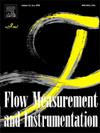A novel loading-sensing flow division principle against large load deviation and flow variation for high presicion hydraulic synchronous drive
IF 2.3
3区 工程技术
Q2 ENGINEERING, MECHANICAL
引用次数: 0
Abstract
Load deviation and flow variation are the two main factors affecting accuracy of hydraulic synchronous drive using flow dividers. This paper proposes a novel loading-sensing flow division principle, which could resist large load deviations and flow changes. Based on the principle, a load-sensing flow dividing valve (LFDV) is developed, combing with multiple functions of load sensing, flow distribution and speed regulation, which establishes a dynamic link between the pump source and the loads by load sensing. This paper describes the new flow division principle, designs the LFDV strcture, establishes a simulation model, and develops a LFDV prototype, and finally test its diverter characteristics under the conditions of time-varying loads and flow variations. The test results indicate that the proposed flow divider is almost not affected by load deviations and suitable for wide flow ranges, and its division accuracy is about 0.2 %–0.5 %, which is more than 10 times that of traditional flow dividers. This study provides a new principle and solution for hydraulic synchronous drives with high precision, high reliability and low cost.
针对高精度液压同步传动的大负载偏差和流量变化,提出了一种新的负载敏感分流原理
负载偏差和流量变化是影响分流液压同步传动精度的两个主要因素。本文提出了一种新的负荷敏感分流原理,该原理可以抵抗较大的负荷偏差和流量变化。在此基础上,研制出一种负载敏感分流阀,结合负载敏感、流量分配和调速等多种功能,通过负载敏感在泵源与负载之间建立起动态联系。本文阐述了新的分流原理,设计了LFDV结构,建立了仿真模型,研制了LFDV样机,并对其在时变负荷和流量变化条件下的分流特性进行了测试。试验结果表明,该分流器几乎不受负荷偏差的影响,适用于较宽的流量范围,分流精度约为0.2% ~ 0.5%,是传统分流器的10倍以上。该研究为高精度、高可靠性、低成本的液压同步传动提供了新的原理和解决方案。
本文章由计算机程序翻译,如有差异,请以英文原文为准。
求助全文
约1分钟内获得全文
求助全文
来源期刊

Flow Measurement and Instrumentation
工程技术-工程:机械
CiteScore
4.30
自引率
13.60%
发文量
123
审稿时长
6 months
期刊介绍:
Flow Measurement and Instrumentation is dedicated to disseminating the latest research results on all aspects of flow measurement, in both closed conduits and open channels. The design of flow measurement systems involves a wide variety of multidisciplinary activities including modelling the flow sensor, the fluid flow and the sensor/fluid interactions through the use of computation techniques; the development of advanced transducer systems and their associated signal processing and the laboratory and field assessment of the overall system under ideal and disturbed conditions.
FMI is the essential forum for critical information exchange, and contributions are particularly encouraged in the following areas of interest:
Modelling: the application of mathematical and computational modelling to the interaction of fluid dynamics with flowmeters, including flowmeter behaviour, improved flowmeter design and installation problems. Application of CAD/CAE techniques to flowmeter modelling are eligible.
Design and development: the detailed design of the flowmeter head and/or signal processing aspects of novel flowmeters. Emphasis is given to papers identifying new sensor configurations, multisensor flow measurement systems, non-intrusive flow metering techniques and the application of microelectronic techniques in smart or intelligent systems.
Calibration techniques: including descriptions of new or existing calibration facilities and techniques, calibration data from different flowmeter types, and calibration intercomparison data from different laboratories.
Installation effect data: dealing with the effects of non-ideal flow conditions on flowmeters. Papers combining a theoretical understanding of flowmeter behaviour with experimental work are particularly welcome.
 求助内容:
求助内容: 应助结果提醒方式:
应助结果提醒方式:


